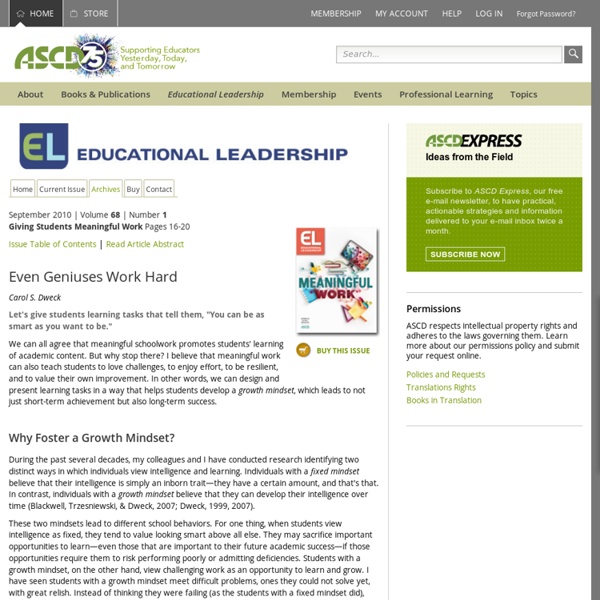Giving Students Meaningful Work:Even Geniuses Work Hard

Mindset Works®: Student Motivation through a Growth Mindset, by Carol Dweck, Ph.D.
Transfer as the point of education
The critical goal of transfer. Arguably transfer is the aim of any education. Given that there is too much for anyone to learn; given that unpredictability is inevitable; given that being flexible and adaptive with one’s repertoire is key to any future success, it stands to reason that we should focus our ‘backward-design’ efforts on the goal of transfer, regardless of what and who we teach (and in spite of pressures to merely ‘cover content’ – which ironically inhibits transfer and worsens test scores, as I discuss below and in the next post). This notion is now front and center in the latest Understanding by Design (UbD) book, Creating High-Quality Units. Furthermore, if you ask people to identify their long-term goals for the year or their career, they almost always identify transfer goals: read widely and deeply, independently; relate current affairs to history and become involved civically; solve all kinds of non-routine problems in and beyond math, etc. Definition of transfer.
Related:
Related:



